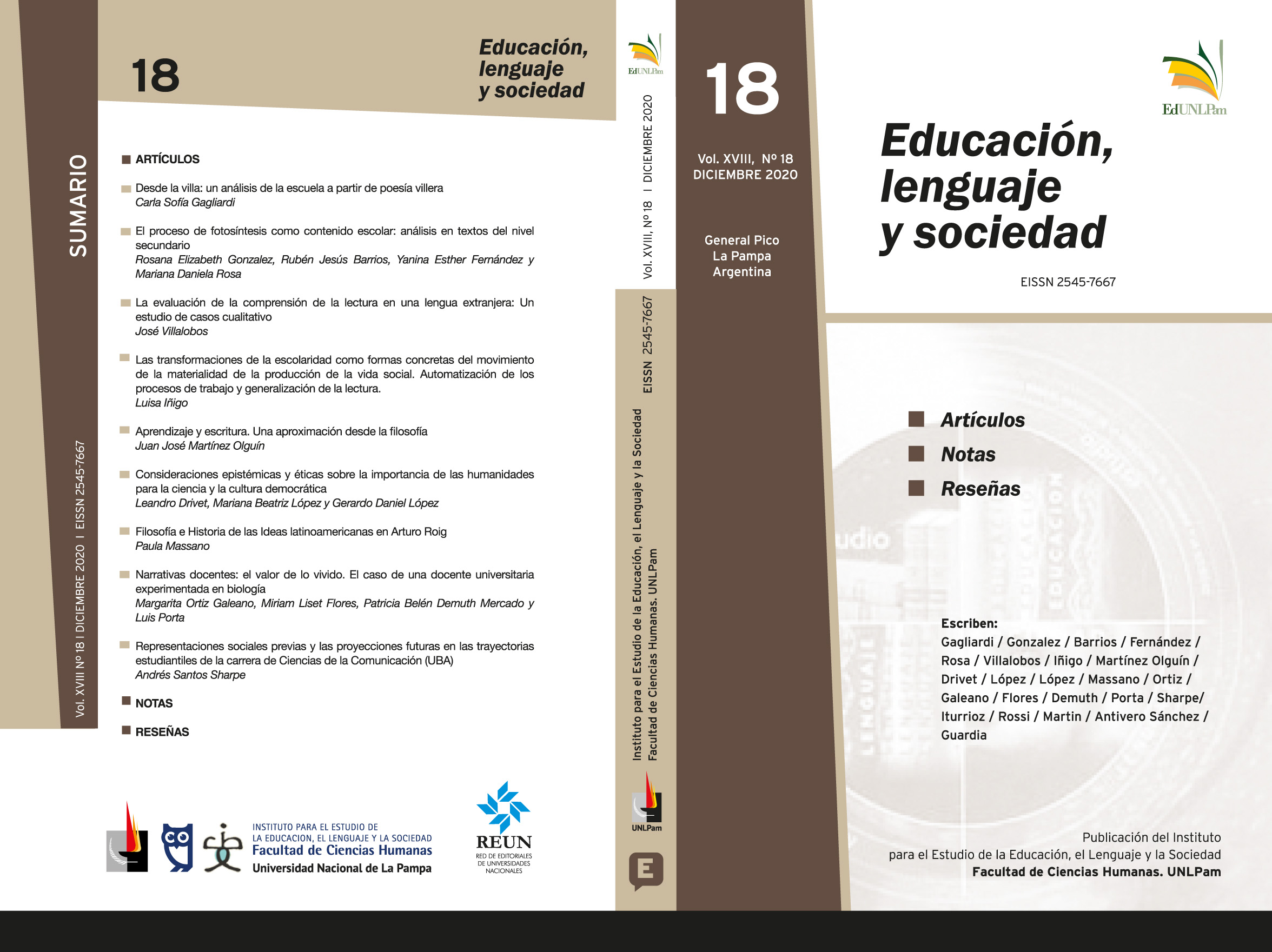Epistemic and ethical considerations on the importance of the humanities for science and democratic culture
Keywords:
humanities, science, epistemology, ethic, democracyAbstract
This article exposes two argumentative lines, corresponding to two forms of philosophy, of pointing out the value of the humanities education for science in particular and for democratic culture in general, in a context of global crisis of the humanities. In first place, we will introduce the problem of the crisis of the humanities today by understanding it through the Marcusian concept of the triumph of the “performance principle”. Then, we will appreciate some specific reasons of epistemology or theoretical philosophy that highlight the importance and validity of humanism as a valid way of knowing irreducible to the ideal of a production-oriented science. In third place, we will analyze some arguments concerning ethics, or practical philosophy that recall the importance of humanistic education and warn against a science disconnected from the humanities by resorting to theoretical and historical reasons. To conclude, we will complement the famous Nussbaum thesis by defining the humanities as “no surveillance purpose” and we will coined the concept of “symbolic credit” to denounce the humanitarian deficit in which we live and to indicate the urgency of promoting the cultivation of the humanities if we want to live in a democratic civil society under the norms of a Rule of Law.






21.png)







